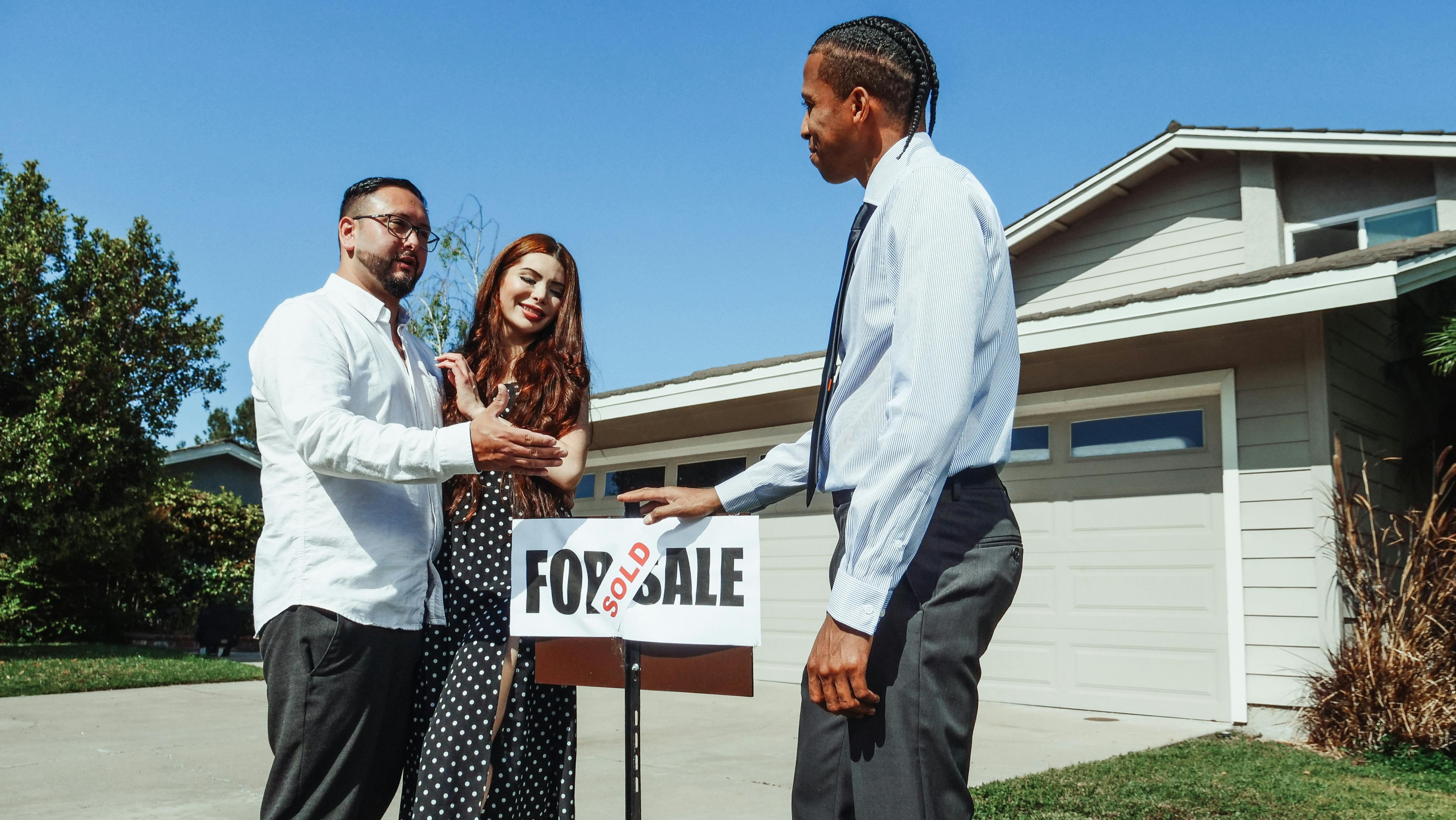What Happens to Real Estate During Pre-Probate
Introduction: Why Pre-Probate Real Estate Matters More Than You Think
Real estate doesn't stop being valuable—or problematic—just because someone passes away. In fact, during pre-probate, properties often sit in limbo, creating golden opportunities for real estate investors while presenting huge burdens for heirs. The probate process can be a long and complex process, involving various roles and legal requirements that differ by state. This unique process entails more steps and participants compared to traditional homebuying procedures. But what exactly happens to real estate before probate begins? Who's in charge? Can you buy or sell it? Let's dive into the pre-probate phase and how to navigate it legally and ethically.

What Is Pre-Probate?
Pre-probate is the time period after a property owner dies but before probate is officially filed in court. It's the legal gray area where assets like real estate hang in uncertainty. There's usually no will executor yet, and no one has the formal authority to sell, transfer, or make decisions about the property—yet action is often still taken. Having clear instructions in a will can ease the estate settlement process.
Understanding the Probate Process
The probate process is a legal process that occurs after a person's death, where the probate court oversees the distribution of the deceased person's assets, including real estate. This process involves managing the deceased person's estate, paying off debts, and distributing the remaining assets to the rightful beneficiaries.
The probate court plays a vital role in ensuring that the wishes of the deceased are honored and that their assets are distributed in accordance with their will or state laws. This legal oversight helps prevent disputes and ensures a fair distribution of the estate. For those looking to sell property during this time, a real estate professional experienced in probate sales can be invaluable. They can guide you through the probate process and its effects on selling property, ensuring that all legal requirements are met and the sale proceeds smoothly. To learn more about this process and how to get ahead of it as a real estate investor, read Probate Leads- What Are They and How To Use Them.
Real Estate's Role in a Deceased Person's Estate
Real estate is often the largest and most emotionally charged asset in a deceased person's estate. A home might represent decades of family history, or it might be a burdensome liability full of back taxes and deferred maintenance. Either way, it's a central issue that heirs must address, and fast. The deceased person's assets, including real estate, must be managed and distributed according to the will or state laws. This is the prime time for real estate investors to secure a great deal on a property, if they can provide value and assistance to the beneficiaries.
Key concerns during pre-probate include the mortgage status, property taxes, maintenance, and utilities, as well as balancing emotional attachment with practical decisions. The probate process ensures that the deceased's debts are settled before any remaining assets are distributed to the heirs or sold to an investor.
Pre-Probate vs. Probate: What's the Difference?
The estate's complexity significantly influences the duration of the probate process, suggesting that factors such as disputes among heirs or the involvement of creditors can prolong the timeline. During pre-probate, the family might be preparing to file probate or may not yet have even contacted an attorney. This is why pre-probate can be such a crucial time for investors-if they're able to get in before probate is filed they avoid much of the legal complexities. To learn more about how to find these leads as an investor, read Maximize Your Success with Pre Probate Leads: A Comprehensive Guide. It's important to understand the steps involved in the probate sale process, as it encompasses more complexities and participants compared to standard homebuying.

Role of the Personal Representative
The personal representative, also known as the executor, is appointed by the probate court to manage the deceased person's estate, including real estate. They are responsible for overseeing the estate's assets, paying off debts, notifying heirs and creditors, and providing updates on the estate's distribution. Working closely with a probate attorney, the personal representative ensures the probate process runs smoothly and complies with state laws, helping prevent fraud and ensuring the deceased person's assets are distributed fairly according to their wishes. This role carries significant responsibility and requires a thorough understanding of the legal complexities involved.
Can Real Estate be Purchased During Pre-Probate?
Yes, in certain circumstances, it is possible to sell real estate during pre-probate, but several important conditions must be met to ensure the sale is valid and legal. These conditions include having a clear and marketable title, proper legal authority to act on behalf of the estate, unanimous agreement among all heirs if there are multiple beneficiaries, and the absence of any pending disputes or contests related to the will. For instance, if the property is held in a revocable living trust, the trustee generally has the authority to sell the property immediately, allowing the sale to bypass the probate process entirely. Understanding these requirements is crucial for anyone looking to navigate the complexities of pre-probate real estate transactions successfully. Purchasing during this time can be highly beneficial for investors since they are able to often purchase below market value due to the high motivation levels of sellers.
Common Complications with Pre-Probate Properties
Real estate in pre-probate can be complex, which is why working with a probate attorney is often recommended. Watch for:
Title issues
Unknown heirs or multiple claimants
Clouded ownership from outdated wills
Unpaid taxes or mortgages
Property condition problems
Properties are often sold as is, meaning they are sold in their current condition without repairs or updates. One missing heir can stall everything. One unpaid lien can delay closing. As an investor, doing your due diligence here is non-negotiable.

Common Pre-Probate Property Scenarios
Vacant and neglected – attracting city code violations
Occupied by heirs – often without legal authority
Rented out – with unclear lease rights
Multiple heirs fighting – deadlock on decisions
Each of these is a potential opportunity—or landmine. Family members often face emotional and logistical challenges when dealing with these pre-probate property scenarios.
Avoiding Probate
There are several ways to avoid probate, which can save time, money, and reduce the complexity of the estate distribution process. One common method is owning property in joint tenancy with right of survivorship, where the surviving owner automatically inherits the property. Establishing a living trust is another effective way to bypass the probate process, as the property held in the trust can be transferred directly to the beneficiaries without going through probate. A transfer-on-death deed is another tool that can allow the property to be transferred directly to the beneficiary upon the owner's death, avoiding probate altogether.
Additionally, a community property agreement can simplify estate planning and eliminate the need for probate for community property. However, it's essential to consult with a probate attorney to determine the best approach for your specific situation and ensure that your estate plan aligns with your wishes.
Why Real Estate Investors Should Focus on Pre-Probate Leads
Motivated sellers: Many heirs just want to get rid of the house fast, allowing for properties to often be sold below market value and on a quick timeline.
Discounted deals: Properties often sell below market to avoid the probate hassle, which allows investors more room for profit.
Low competition: These leads are harder to find, meaning fewer investors chase them. Selling a house during or after probate can be necessary for settling debts and distributing assets to heirs, often requiring court approval.
Marketing to Pre-Probate Leads Ethically
Approaching grieving families isn't about hard sells; it's about helping. When reaching out, use soft, compassionate language and offer value-based services such as clean-out crews or legal referrals. Focus on presenting options rather than applying pressure, and always respect their timeline. A good strategy is to start with a condolence letter followed by helpful content that guides them through the process rather than selling to them. Additionally, addressing personal belongings is crucial before listing the property to ensure sensitivity and thoroughness. To learn how you can assist families during pre-probate, read How Probate Investors Can Offer Value To Surviving Spouses.

Red Flags for Investors to Watch Out For
No proof of authority to sell
Title is still in deceased's name
Other heirs not on board
Disputes over the deceased's will
Back taxes, fines, or HOA liens
Always check with a probate or estate attorney before entering a contract to make sure all your bases are fully covered.
How to Handle Pre-Probate Properties Professionally
Run a title search before making an offer, get all heirs' consent in writing, use earnest money clauses tied to probate approval, avoid "kitchen table" contracts by using an attorney, and consider working with a probate specialist agent. It is crucial to manage and protect the estate's assets, including real estate, while the deceased's debts are settled.
Wholesaling Pre-Probate Properties: Smart or Risky?
Wholesaling is possible but must be done with care:
Only contract with someone who has authority
Include legal contingencies
Be transparent with end-buyers
Avoid "locking up" deals that may never close
Done right, wholesaling can solve a huge problem for heirs and turn a tidy profit. However, understanding the sale process during probate is crucial to navigate potential complications and ensure a smooth transaction. To learn more about the process of wholesaling during this sometimes complicated time, read Wholesaling Probate Leads: Best Practices for Real Estate Investors.
Real Estate Tools for Pre-Probate Investors
USLeadList provides verified pre-probate data, allowing investors to get a head start on their marketing. Their fresh data is released every month, and is kept exclusive by only selling to a maximum of three investors per county. To check out it out, go to their website and inquire about your counties of interest. Skip tracing tools are essential for quickly locating heirs, and ringless voicemail, mailers, and texting tools can be used ethically to reach out effectively. In addition, effective financial management is crucial for overseeing the various financial aspects related to the property during probate.

Legal Tips Before Making an Offer on Pre-Probate Property
There are several steps to take before making an offer on a property that has yet to enter probate. These include verifying the legal standing of the seller, confirming that probate hasn't already started, and understanding the state law governing inheritance, which dictates how real property is distributed when a decedent does not leave a will. Additionally, look for a will or trust on file and have an attorney draft or review the contract to ensure all legal aspects are properly addressed.
Conclusion: Pre-Probate Real Estate is a Hidden Goldmine—If Handled Right
Pre-probate properties represent the sweet spot between availability and urgency, as families are often overwhelmed, uncertain, and facing emotional and logistical challenges but remain open to receiving help. For investors, this presents a valuable opportunity to provide meaningful assistance and solve significant problems in a manner that is legal, ethical, and profitable. By approaching these situations with compassion first, handling the necessary paperwork thoroughly second, and considering profit third, investors can build a solid and trustworthy business within this underserved niche, ultimately benefiting both families and themselves. To learn more about this specific niche of real estate investing, read Understanding Pre Probate vs Probate Leads: Key Differences Explained and talk to local probate attorneys in your area.